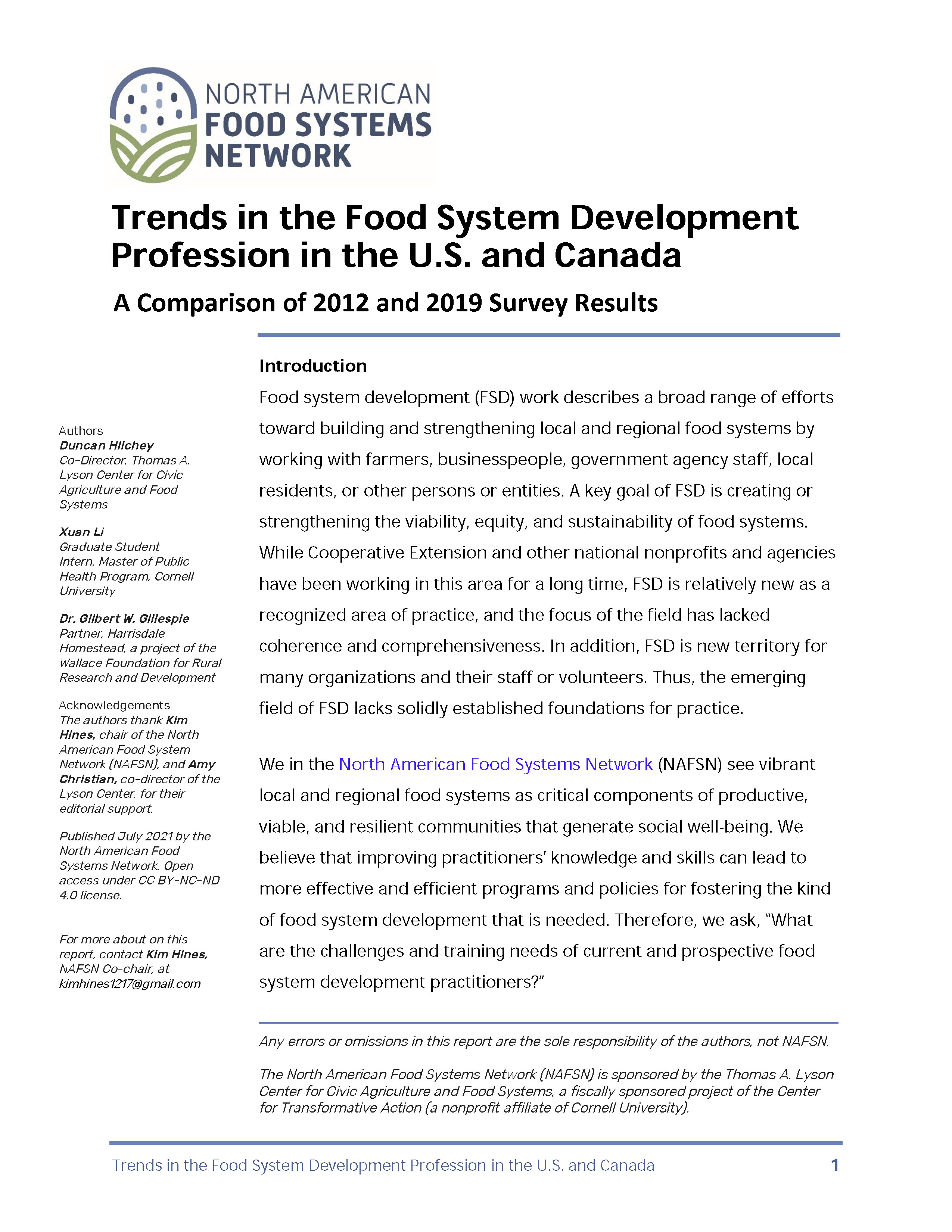PROFESSIONAL TRENDS
Food systems development, while gaining recognition in the fields of nutrition, community health, and agriculture in recent years, is still a fledgling profession.
To identify challenges and opportunities in the field of food systems development (FDS), the Thomas A. Lyson Center surveyed food systems development practitioners in 2012 about their training, funding, networking and information needs, resulting in NAFSN's founding White Paper.
In 2019, NAFSN conducted a second survey, using a near identical questionnaire, to determine how food systems development practices had evolved in the intervening seven years.
The report is called "Trends in the Food System Development Profession in the U.S. and Canada: A Comparison of 2012 and 2019 Results," co-authored by Duncan Hilchey, Xuan Li, and Dr. Gilbert W. Gillespie.
"As the field of food systems development matures, a better grasp of its characteristics and practitioners will be needed," wrote the co-authors. "We think these surveys will contribute to achieving those insights."
The surveys identified an increasing desire to receive training for working with socially disadvantaged groups, as addressing racial and/or cultural divides increased from 30% to 46% from 2012 to 2019 as a challenge within food systems development organizations.
Despite the disproportionate impact of food systems issues on communities of color, the FDS workforce remains dominated by highly educated, non-Hispanic white women, demonstrating an acute need for diversity, equity, and inclusion (DEI) initiatives.
Survey comparisons also identified increased funding as a top need for professional support, as respondents working 31+ hours a week increased by 8%. The data confirms FDS work is evolving into a more stable occupation, even as the workforce transitions with a 7% increase of self-identified nonprofit organization staff and a 3% decrease in those who identify as farmers or businesspersons.
"We now have a better understanding of what types of trainings and other professional development support would advance food development as a profession and aid its practitioners in their work and career development," wrote the co-authors.
